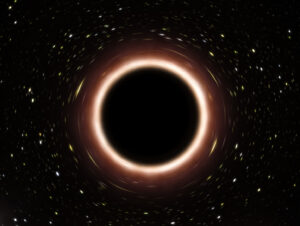
During this week, I look at one of the universe’s most mysterious puzzles, black holes. I used to think black holes were just giant vacuums (LOL), I thought wrong! It turns out they’re more than just giant vacuums!
Hold on… What is a Black Hole?
A black hole forms when a huge star falls under its own gravity, creating a purpose with gravity that’s so strong, not even light can escape!
Here are 3 types of black holes you should know:
Stellar Black Holes: They’re born from falling stars
Supermassive Black Holes: Millions – billions of times the Sun’s mass, is usually hanging at the galaxy centers
Primordial Black Holes: Potential remain from the earlier universe, this is still a cosmic question
Bending Space:
I read this engaging article about how black holes warp the fabric of spacetime, it’s kind of like putting a bowling ball on a trampoline. If something gets near, it crosses the event horizon, to the point of no return. After that… well, see you never! Not even light could bounce back!
I listened to a podcast, which then brought science to life through the sound and narration. They talked about how time slows down near a black hole and how much gravity changes everything, even the rules of physics start to shake.
To end things off, I also watched a video, it showed how scientists utilize math to get a complete understanding to know what happens near these cosmic giants. This video is super visualizing and way less perplexing than it seemed it was.
How Do We Learn Something That’s Invisible?
While black holes don’t release light, astronomers follow the stars and gas surrounding them. When stars circuit something unseeable, fast, and very big, it’s usually a black hole.
Did You Know? Black holes can disappear over time through something that’s called Hawking Radiation. Yes, they can actually disappear.
What I Learned This Week:
Black holes aren’t sci-fi, but they’re physics in its crazy form. What helped me get a better understanding of black holes was using a mix of videos with visuals, articles, and podcasts. The science then clicked when I could see and hear these concepts, not just read all about them.